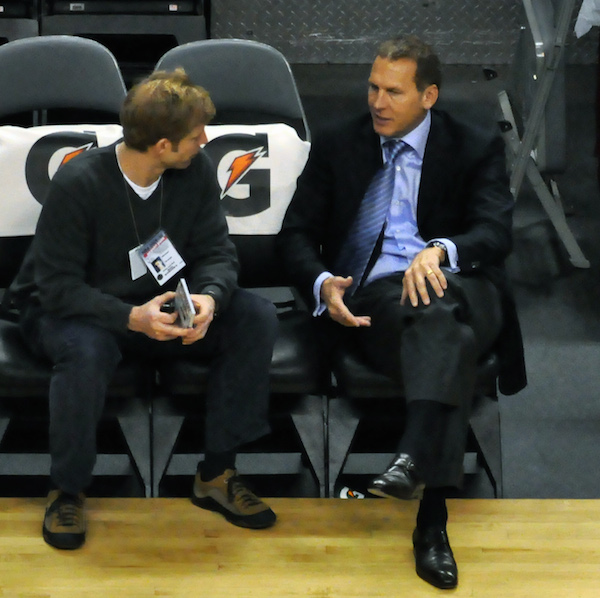Dear Sports Fan,
I’ve seen a lot of articles over the last day or two about the NBA trade deadline. What is a trade deadline? Why do sports leagues have them?
Thanks,
Anne
Dear Anne,
It’s hard to define what a trade deadline is without using the words trade or deadline! The trade deadline is a particular date and time after which teams in a professional sports league cannot agree to exchange players or draft picks with other teams. It’s exact date varies by league and by year but each sport has a standard for when it falls in their calendar — half-way through, three-quarters of the way through, etc. It’s an exciting time for sports fans, because, like the day of the draft, it’s a time when fans of every team in the league can be feel hope.
The NBA trade deadline in 2015 is on February 19 at 3 p.m. ET. By this date, most teams will have played between 52 and 55 of their 82 game seasons. They are around two-thirds of the way through the season. The NHL trade deadline this year is on March 2, also at 3 p.m. ET. By then, teams will have played 63 to 67 of their 82 game season. That’s a little farther along — more like 77-82% of the way through the season. On the other end of the spectrum is the NFL, which places its trade deadline right after week eight of 17 or 47% of the way through. What’s the impact of this choice? Well, teams usually decide to be more of a “buyer” meaning they are willing to sacrifice future prospects for players that would be of use this season, or “sellers” meaning they are willing to trade the present for the future, based on how well they’re doing each year. The later a trade deadline falls within a league calendar, the more sure teams will be of their chances to win a championship this season and therefore which role they should play in trades. A later trade deadline creates more and more impactful trades.
Aside from tradition, it’s not entirely clear why teams are not allowed to trade players year-round. I think there is a sense that should be cohesive units before the playoffs begin. During the playoffs, the intensity of emotion and physicality of sports increases. Team allegiance starts to feel more like a matter of identity than choice. Having unfamiliar players on your team at the start of the playoffs or even seeing players move from team to team during the playoffs would break the spell. There’s also the question of competitive balance. Teams might be willing to sacrifice a lot of their future assets on the last day of the season if they were in a position to acquire a player they think could help them make the playoffs or qualify for the next round. Sports leagues understandably may want to protect rash team owners from hurting themselves and their fans for the next five or ten years for a short-term gain.
The day of the trade deadline and the day or two before it are among the most exciting days in sports. If the team a fan roots for is terrible, by halfway to four fifths of the way through the season, its fans are probably a little sick of watching it play. At trade deadline time, the team can interest them again by making moves to get better next season. For fans of teams that seem like they have a chance to win a championship, it’s even more exciting to speculate and then witness what the team does to make itself better for its playoff run. Every fan likes to think of themselves not only as an athlete on their favorite team, the coach of their favorite team, but also the general manager too! Speculating about trades before the trade deadline is an exercise in imagination. What player from an opposing team would fit best with your favorite team? Who could your team part with without losing their essence?
Trade deadline day is covered obsessively online, primarily on Twitter, and also live on TV. Sports channels are happy to devote time during a week-day to a panel of “experts” who blab and blab all day about the trades as they are reported to the league office and the media. The excitement (I know I sound a little cynical about this, but I do get really excited too) peaks right around the time of the deadline and for a few hours later as information about trades which were executed right before the deadline comes out through the media to fans.
If your colleagues are more distracted on February 19 or March 2 than they normally are, you’ll know why!
Thanks for asking,
Ezra Fischer

